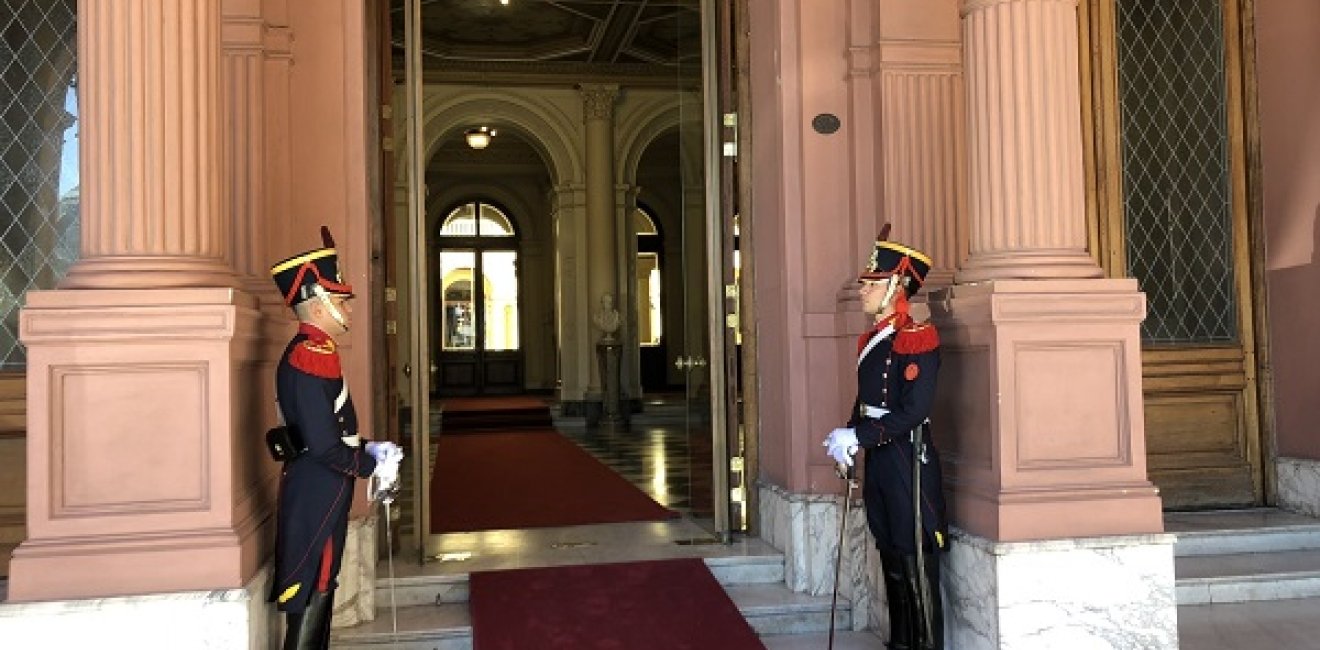
A blog of the Latin America Program
Argentina is subject to a handful of odd economic curses, including recessions in even-numbered years and a full-blown crisis every decade. Now, it appears to be suffering from Murphy’s law as well.
President Mauricio Macri’s troubles this year followed a period of positive economic news. The economy expanded by 2.9 percent last year, the fastest growth rate since 2011. The first three months of this year were the seventh consecutive quarter of growth – the longest stretch in six years. But by the end of April, the medialunas had gone stale. Argentina’s currency rapidly lost value as U.S. interest rates rose and investors fled the peso for the U.S. dollar. Despite a $50 billion International Monetary Fund bailout and repeated interest rate hikes, the peso continued to collapse in August, due in part to contagion from Turkey and broader concerns about emerging markets. Simultaneously, the country experienced a drastic decline in farm output, brought about by the worst drought in decades. The soy harvest declined by 40 percent, aggravating a balance of payments crisis. Food prices surged, increasing inflation that was already spiking because of the steep devaluation. Brazil’s sluggish recovery did not help, hampering Argentina’s exports to its number-one trading partner. In July, economic output fell by 6.7 percent compared to the same period last year, and the August figures are also expected to be ugly. Inflation will exceed 40 percent this year, according to the central bank’s August experts survey.
So that was a rough stretch. Argentina, however, is no stranger to economic ups and downs. But the next blow was unexpected: An investigation into corruption that threatens to bring down political and corporate giants. On August 1, La Nación published the diaries of a former driver for a senior public works official, which offered encyclopedic details of apparent massive bribe paying by government contractors from 2003 to 2015. The alleged Kirchner-era coimas reportedly total $200 million, and implicate former President Cristina Fernández de Kirchner, her late husband, Néstor Kirchner, former senior members of their administrations and corporate behemoths.
The “cuadernos” scandal has rattled markets and analysts fear it could dampen investment and jeopardize the public private partnerships that Mr. Macri hopes will compensate for evaporating public spending on infrastructure. (To balance next year’s budget – and produce a surplus in 2020 equal to 1 percent of GDP – the government is again slashing capital spending.) “Seguramente, todo ese proceso de los cuadernos, y de salir a la luz tantas cosas, genera todavía más razones para que se profundice la recesión económica,” Mr. Macri said. The last few months, he said later, had been the worst in his life since he was held for ransom in 1991.
In fearing economic fallout from a mega corruption scandal, Mr. Macri must have Brazil on his mind. In 2014, the infamous “lavo jato” (car wash) corruption probe began, and quickly ensnared Brazil’s political and economic elite. Like the “cuadernos” investigation, “car wash” involved bribes paid by contractors to win public works projects. As of last month, 200 people had been convicted, firms had paid $5.8 billion in fines and consumer confidence had suffered. The scandal had a chilling effect on investors and banks, as it was unclear who would end up implicated in the sprawling probe. Investment as a percentage of gross domestic product declined from 21 percent in 2014 to 15 percent in 2017, though foreign investment was stable. GDP declined by 7 percent from 2015 to 2016.
But in a rare bit of good news for Argentina, it is not clear that the “cuadernos” scandal will produce the “car wash” effect. That is because the “cuadernos” investigation differs from “car wash” in one important aspect: Mr. Macri’s government is not accused of corruption. In Brazil, the scandal upended the political system. The controversies led to President Dilma Rousseff’s impeachment in 2016, and put her predecessor, Luiz Inácio Lula da Silva, behind bars, though he was the country’s leading presidential candidate for the October elections. By contrast, so far at least, Argentina’s “cuandernos” scandal has only implicated previous Kirchner administrations.
Fears of economic fallout from the “cuadernos” probe are not entirely unfounded. In Argentina, in the short term, the investment climate will likely suffer, and at the worst possible moment. Experts polled by the central bank expect GDP to decline this year by 1.9 percent. Meanwhile, though the government has not sanctioned firms implicated in bribery, there are concerns that planned public private partnerships might fall apart and overall investment could slow. Still, the “cuadernos” scandal has not created the level of political uncertainty seen in Brazil. In fact, it might end up strengthening Mr. Macri’s reelection campaign by tarnishing his Peronist rivals. That would help investor confidence recover. For as much as businesses dread the increasing regulatory risk in Argentina, their biggest nightmare is a potential populist revival.

Latin America Program
The Wilson Center’s prestigious Latin America Program provides non-partisan expertise to a broad community of decision makers in the United States and Latin America on critical policy issues facing the Hemisphere. The Program provides insightful and actionable research for policymakers, private sector leaders, journalists, and public intellectuals in the United States and Latin America. To bridge the gap between scholarship and policy action, it fosters new inquiry, sponsors high-level public and private meetings among multiple stakeholders, and explores policy options to improve outcomes for citizens throughout the Americas. Drawing on the Wilson Center’s strength as the nation’s key non-partisan policy forum, the Program serves as a trusted source of analysis and a vital point of contact between the worlds of scholarship and action. Read more


Argentina Project
The Argentina Project is the premier institution for policy-relevant research on politics and economics in Argentina. Read more

Explore More in Weekly Asado
Browse Weekly Asado
Dengue Haunts South America’s Summers

Lessons from Costa Rica’s Economic Transformation

Women and Latin America’s Digital Revolution

